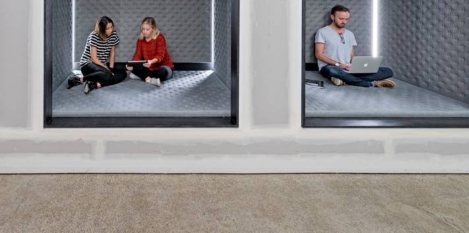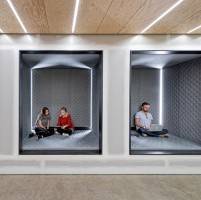March 14, 2019
Neither bosses nor staff feel confident about future UK business environment
 Two new reports published this week, show a lack of confidence amongst employers and employees within the UK business environment. The latest data in Gartner’s Global Talent Monitor report shows employee confidence in near-term business conditions and long-term economic prospects reaching an index score of 55.6 for the last quarter of 2018, a decline of 7.5 percent from an index score of 60.09 in 3Q18. These results follow a worldwide trend that has seen global business confidence sink to its lowest point since the fourth quarter of 2017. Meanwhile a survey of business leaders in the UK by management consultancy Lane4 found that bosses do not feel prepared to lead through future challenges like artificial intelligence and political volatility. (more…)
Two new reports published this week, show a lack of confidence amongst employers and employees within the UK business environment. The latest data in Gartner’s Global Talent Monitor report shows employee confidence in near-term business conditions and long-term economic prospects reaching an index score of 55.6 for the last quarter of 2018, a decline of 7.5 percent from an index score of 60.09 in 3Q18. These results follow a worldwide trend that has seen global business confidence sink to its lowest point since the fourth quarter of 2017. Meanwhile a survey of business leaders in the UK by management consultancy Lane4 found that bosses do not feel prepared to lead through future challenges like artificial intelligence and political volatility. (more…)









 The recruitment and retention of manual and elementary service workers has become a significant challenge for UK employers, claims a new study. The research by Quinyx in collaboration with Development Economics and Censuswide, found that factors such as low pay and a lack of flexibility are key issue, resulting in nearly half (49 percent) of UK employers finding it difficult to recruit these workers, and the same percentage reporting challenges around retention. Issues with recruitment and retention were discovered to be most acute in industries such as hospitality, catering & leisure and retail. In addition, larger businesses (those with a workforce of 250 to 500) are more likely to face challenges compared to smaller-sized businesses. Regionally, businesses in London and the East of England are most likely to struggle to recruit workers into manual or elementary service roles. The findings come at a time when UK employers are expressing growing concern around access to manual and elementary service workers post-Brexit.
The recruitment and retention of manual and elementary service workers has become a significant challenge for UK employers, claims a new study. The research by Quinyx in collaboration with Development Economics and Censuswide, found that factors such as low pay and a lack of flexibility are key issue, resulting in nearly half (49 percent) of UK employers finding it difficult to recruit these workers, and the same percentage reporting challenges around retention. Issues with recruitment and retention were discovered to be most acute in industries such as hospitality, catering & leisure and retail. In addition, larger businesses (those with a workforce of 250 to 500) are more likely to face challenges compared to smaller-sized businesses. Regionally, businesses in London and the East of England are most likely to struggle to recruit workers into manual or elementary service roles. The findings come at a time when UK employers are expressing growing concern around access to manual and elementary service workers post-Brexit.






 We might think that an inability to absorb the vast amount of information generated by our fellow humans and their machines is something of a modern phenomenon, but we’ve always known we can have too much of this particular good thing. Distringit librorum multitude, wrote Seneca in the First Century. An abundance of books is a distraction.
We might think that an inability to absorb the vast amount of information generated by our fellow humans and their machines is something of a modern phenomenon, but we’ve always known we can have too much of this particular good thing. Distringit librorum multitude, wrote Seneca in the First Century. An abundance of books is a distraction.















March 14, 2019
Mobile working is a recipe for business success
by Sally Elliott • Comment, Technology, Workplace design
(more…)